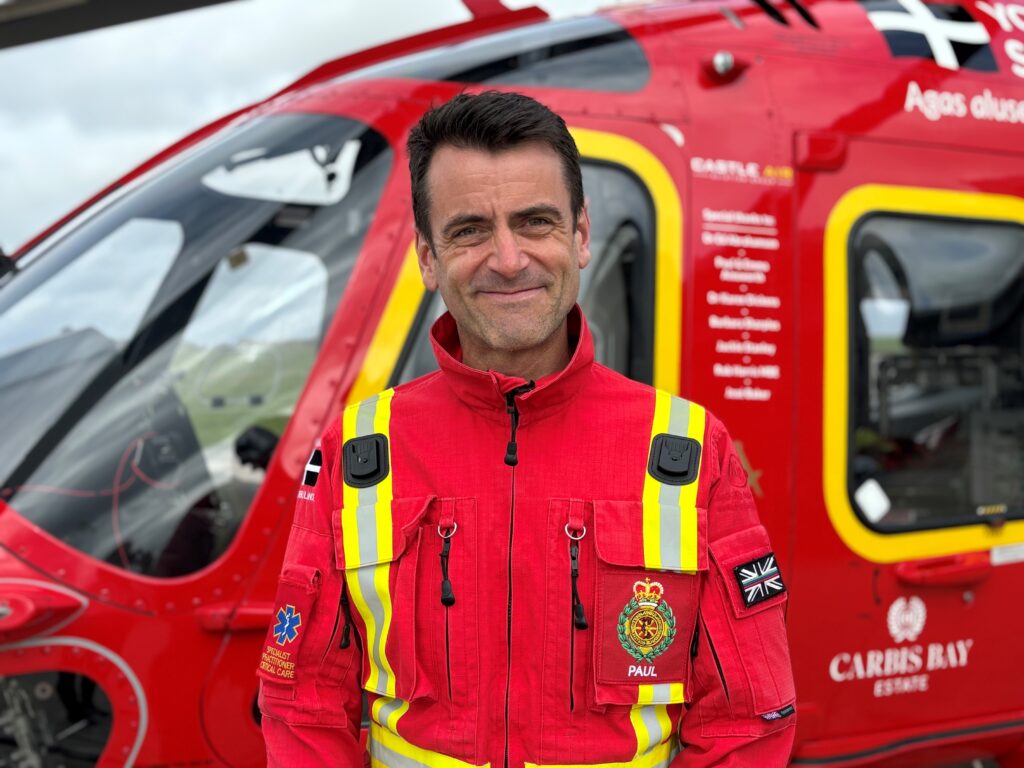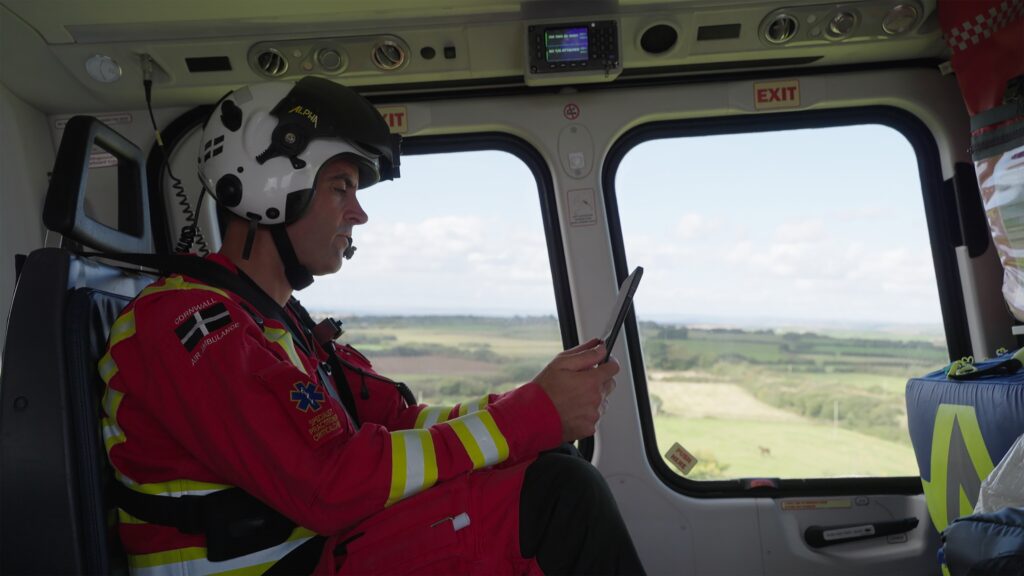A Day in the Life of a Critical Care Paramedic – Paul Maskell

SEARCH BLOG POSTS
SEARCH BY CATEGORIES
SEARCH BY MONTH
Critical Care Paramedic Paul Maskell talks us through the day shift at Cornwall Air Ambulance, from starting his shift, to the morning briefing, what happens when the red phone rings and what makes his job so special.
“It’s the best job in the world, to work here as part of a team that helps people is amazing. And I don’t just mean the clinical team, it’s the pilots, the charity staff, we’re just one big team with the same goal, it’s a shared goal, and that’s to save lives across Cornwall and the Isles of Scilly.”
The morning checks
So in the morning we just check that the bags are still sealed and check that the tags correlate. Any time we use any equipment at all, we do a two person check and then seal the bag afterwards to make sure that all the vital equipment is in the bag and ready to go.
We are so lucky that we are in partnership with the Royal Cornwall Hospital and Cornwall Blood Bikes. We carry eight units of blood products, made up of four units of FFP and four units of packed red cells. What that means is that we can start a blood transfusion at the side of the road, which over the years since we’ve been carrying it, I’ve seen it make a real difference to patients.
Once the pilot has performed their checks on the aircraft, and we’ve checked all the medical equipment and signed out our controlled drugs, we then gather as a team with the pilot and they’ll give us a brief for the day. That will include the weather, any limitations, tide times and the sea state as week.

Going out on a mission
So as soon as the red phone rings during the day, the pilot will go straight out to the helipad and start the aircraft up. Normally the TCM will also follow him out, and then the clinician in the back will just take the basic details of the call, and then we’ll be grabbing our helmet and we’ll be following out very shortly. We head out to the aircraft as it’s starting up, we then get in and we’ve got ACANS, which is a system on the iPad. What happens is the desk in the control room, they’re able to send details down on that as well, so that we’ve got a grid, and we’ve got a route to follow, so we’ll use that as part of our navigation process. And then once we’re on the aircraft, normally the clinical team would just be checking that we’ve got all the kit that we need and the TCM will be starting the checks with the pilot before we lift off.
It’s like taking the hospital to the patient, because of the capabilities of the helicopter it enables us to get there quickly, with the advanced kit that we have on board and the blood products, it enables us to provide lifesaving treatment, it’s a real privilege to work here and in the four and a half years I’ve been here, I’ve seen a real difference to some patients who probably wouldn’t have survived if we hadn’t of been tasked to them.
It’s really important that we get a second AW169. What that will do is increase our capability across the 365 days, 19 hours that we cover. We’ll be able to fly to more patients and ultimately save more lives across Cornwall and the Isles of Scilly.